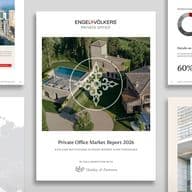
- 3 min read
Owning a property classified as a historic monument: advantages and disadvantages

There are 43,000 listed buildings in France. This means that they are officially recognised by the State as being of significant value to France's artistic or historical heritage. Half of these listed properties belong to private owners and individuals. Here are the main advantages and disadvantages of owning a property classified as a historic monument.
Investing in a historic monument for tax-free income
This is the first thing that springs to mind when you think of investing in a property listed as a historic monument. Many financial advisers will tell you that this is a very good tax exemption solution. Since 2017, in most cases, the owner of a listed building is no longer liable for property wealth tax. What's more, all the costs of restoring and maintaining your property, as well as any interest on loans taken out to carry out the work, are deductible from your income tax.
The government considers that you are making a direct contribution to the preservation and protection of the national heritage. What's more, this tax advantage is matched by another advantage, this time in terms of inheritance. An agreement stipulates that the transfer or donation of a property classified as a historic monument is exempt from inheritance tax. It makes no difference whether you pass it on to a member of your family or to someone else - the exemption still applies.
Maintaining and conserving your property: a wide range of grants available
As part of the drive to encourage private owners to acquire and preserve listed properties, the French government offers a wide range of grants and sponsorship opportunities, in addition to tax exemptions and tax relief solutions. Very few private individuals who invest in a building of this type intend to make any economic profit from it. Generally, it is the prestige of the site and the feeling of responsibility towards the national heritage and its enhancement that guide the potential buyer.
In return for this commitment, the State offers the owner public subsidies through the Direction Régionale des Affaires Culturelles (DRAC). These are paid towards the costs of maintenance and restoration work, as well as diagnostic studies. It is also possible, after signing an agreement with a heritage institution (such as the Fondation du Patrimoine), to benefit from private sponsorship. To do this, however, you need to guarantee that your property will be open to the public for a few days a year, particularly during school holidays and public holidays.
Investing in a historic property: duties and obligations
If you own a property classified as a historic monument, you cannot maintain and conserve it as you please. There are certain duties and obligations regarding the maintenance, conservation and restoration of listed buildings. French law protects this type of building against the sometimes eccentric, sometimes destructive desires of certain owners, who could potentially damage a part of our heritage. For example, it is strictly forbidden to divide up a listed building.
Nor can the owner, on his own initiative, destroy, transform or modify it. The slightest decision concerning the property (works, but also sale, donation or bequest) must be approved in advance by the Ministry of Culture. This measure is designed to protect the integrity of the building, but places its owner in a position of decision-making dependence on the State. The public interest of a building classified as a historic monument will therefore always take precedence over the private interests of its owner, in the eyes of the law.
A property project that involves responsibility and commitment
Finally, if you are planning to invest in a property classified as a historic monument, you should be aware that you are making a long-term commitment. You will be legally obliged to keep the property for a minimum period of fifteen years from the date of purchase. With this measure, the French government is seeking to protect its historic and artistic heritage from opportunists, from buyers who do not feel invested with a certain responsibility for a building that is part of the nation's history.
The purchase is therefore subject to a minimum fifteen-year commitment by the owner, during which time he or she must guarantee the preservation of the property for the benefit of all. It is only on this condition that the buyer can benefit from exemption from property wealth tax, as outlined in article 156 bis of the General Tax Code, which relates to historic monuments.
You may also be interested in
 Market report 2026: trends, prices, and outlook in France
Market report 2026: trends, prices, and outlook in France Engel & Völkers renforce sa présence dans l’immobilier de luxe à Nice
Engel & Völkers renforce sa présence dans l’immobilier de luxe à Nice Private Office Market Report 2026
Private Office Market Report 2026- 2 min.
- 03.12.2025
 Paris Olympics 2024
Paris Olympics 2024&w=1920&q=75) Reasons to hire a real estate agent
Reasons to hire a real estate agent Why choose a sole agency agreement?
Why choose a sole agency agreement? France premium prestige real estate advisory
France premium prestige real estate advisory Short-term event hire Paris: Tennis, Rugby World Cup, Olympic Games and Paralym
Short-term event hire Paris: Tennis, Rugby World Cup, Olympic Games and Paralym
Contact
Contact your personal advisor


Engel & Völkers France
170 Rue du Faubourg Saint-Honoré
75008 Paris
Tel: +33145643030